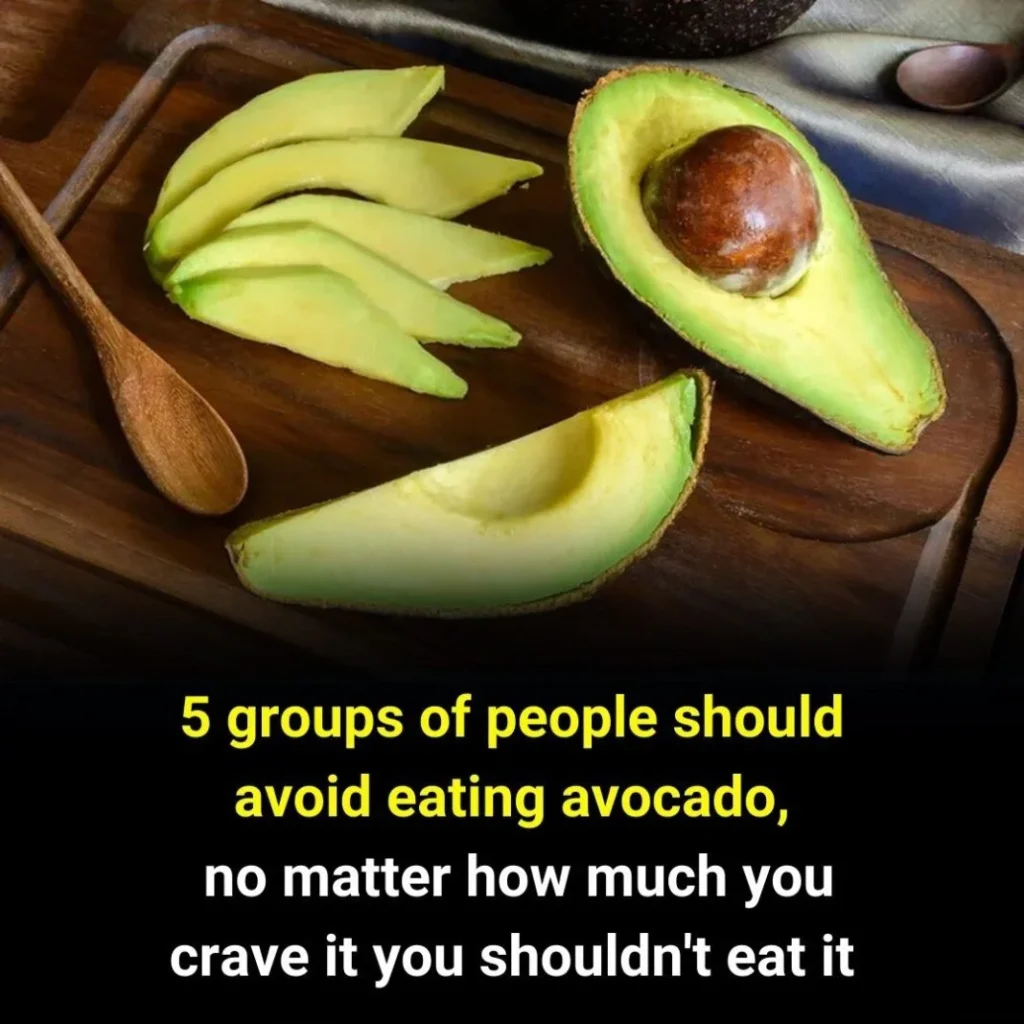3. People Who Are Allergic to Latex
This one surprises a lot of people — but it’s a real concern.
Avocados contain proteins that are similar to those found in natural latex. That means people with a latex allergy can sometimes experience cross-reactivity — where the immune system mistakes the avocado proteins for latex and launches an allergic response.
This is known as latex-fruit syndrome, and it doesn’t stop at avocado. It can also apply to bananas, chestnuts, kiwis, and even papayas.
Symptoms can range from mild itching to more severe reactions like difficulty breathing or gastrointestinal distress.
. Bottom line: If you’ve ever reacted to latex gloves, balloons, or rubber bands — it’s time to rethink that guacamole.
4. People Struggling with Obesity or Weight Gain
Yes, avocados are a “healthy fat” — but let’s not forget: they are still high in calories.
Just one medium avocado has around 240–250 calories and roughly 23 grams of fat. While that fat is mostly heart-healthy monounsaturated fat, eating avocados in large amounts — especially when blended with sugary milk or eaten with chips and toast — can quietly pack on pounds.
Many people mistakenly believe that because avocados are healthy, they can eat them freely. But weight gain happens when calorie intake exceeds what your body burns — regardless of how nutritious those calories are.
If you’re trying to lose weight or manage obesity, it’s critical to be calorie-conscious — and that includes your beloved avocado toast.
. Bottom line: Avocados are not a free pass. Watch your portion size and balance your meals accordingly.
5. Breastfeeding Mothers
Avocados are commonly recommended for pregnancy, but after delivery, it’s a different story.
During breastfeeding, certain compounds in avocado — especially in large amounts — may interfere with milk production. Some reports suggest that excessive avocado intake can lead to reduced milk supply or gastrointestinal issues in nursing mothers and their babies.
While the science is still evolving, many healthcare professionals suggest caution. If you’re breastfeeding and notice your baby becoming unusually gassy, fussy, or experiencing stomach upset after nursing, your diet may be the cause — and avocado could be a hidden culprit.
. Bottom line: If you’re nursing, keep your avocado servings small and monitor both your body and your baby’s reactions.
Avocado Isn’t Evil — But It’s Not for Everyone
Avocados are rich in nutrients, fiber, and healthy fats. For many people, they’re a great part of a balanced diet. But even the healthiest foods can become harmful when eaten without care or in the wrong health context.
Whether it’s allergies, liver concerns, or the struggle to lose weight, it’s important to listen to your body — and talk to your doctor.
So, should you avoid avocados entirely?
. Only if you’re in one of the five risk groups above. Otherwise, enjoy in moderation. A couple of slices on whole grain toast, a spoonful in a salad — that’s plenty to reap the benefits without overdoing it.
Remember, health isn’t just about the foods you can eat. It’s about knowing which foods are right for you.
ADVERTISEMENT

